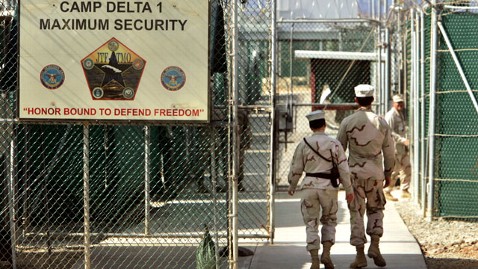Former Chief Gitmo Prosecutor: President Obama Must Close the Prison

(AP Photo/Brennan Linsley, file)
Morris Davis, the former chief prosecutor in Guantanamo Bay military commissions, is renewing his call for President Obama to close the prison.
"Fiscally, it makes no sense. From a legal perspective, the thread's getting thin," Davis, a former Air Force colonel, told ABC News in a phone interview Thursday. "If you look at the cases that have been generated out of Guantanamo … it's made bad law. We haven't had any good law come out of Guantanamo. It's just been a black eye legally."
Davis resigned his post in October 2007, disputing that evidence obtained through waterboarding should be admitted in the commission proceedings. Before resigning, he penned an op-ed in The New York Times saying Guantanamo conditions weren't as bad as they were made out to be, but he has since said that Guantanamo's prison should be closed entirely.
Asked about Guantanamo at his press conference this week, President Obama maintained that it should be closed. The president ordered its closure upon taking office in 2009, but resistance from Congress has gotten in the way.
"It would have to be a solid 'F' at this point," Davis said, when asked to grade Obama's effort at closing the prison. "I think he was genuine and sincere in 2007 and 2009."
Davis said he backed Obama's candidacy in 2008, supporting then-Sen. Obama's promises to close Guantanamo.
"When I retired [from the military], it was the first time in 25 years I got to actively participate [in politics]. I put an Obama sign in my yard. Somebody set it on fire, so I put up another one," Davis told ABC News. "I was really excited when he got elected that we were going to end this era."
The effort to close Guantanamo has faced numerous problems. For instance, the administration has resisted repatriating detainees to Yemen. Davis said the administration would be better off sending them there, despite concerns about the Yemeni government.
Perhaps the stickiest point, however, is what to do with detainees the administration doesn't want to release, but doesn't want to try in commissions or court - those considered dangerous, but for whom incriminating evidence may be inadmissible or may involve intelligence matters too sensitive to air publicly. Davis said it's a hard choice, but one the president will have to make.
"I think you've got to make a choice. You're going to have people kicking and screaming," Davis said of political opposition to releasing detainees that could be dangerous.
"If I was a betting man, I would bet somebody in that group is going to do something bad in the future. I don't think you can avoid that, but there is no way you can reduce the risk to zero," Davis said. "The buck's gotta stop somewhere. The president's gotta make some tough decisions and be responsible for the consequences."